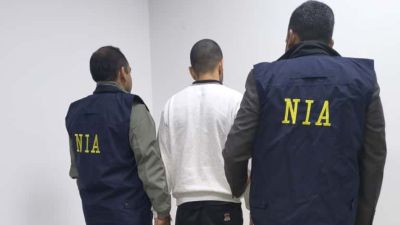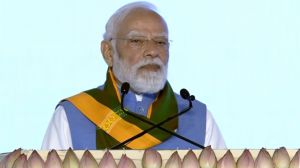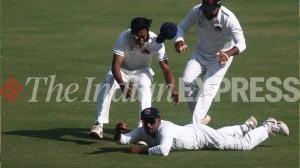Judge this prescription
The academic session for students joining high-stake medical or dental courses across the country began on August 1. On the same day, a Supr...

The academic session for students joining high-stake medical or dental courses across the country began on August 1. On the same day, a Supreme Court bench headed by Justice Y.K. Sabharwal directed the Medical Council of India (MCI), at the instance of the government, to re-inspect nine medical colleges which had already been found ill-equipped to make fresh admissions this year. The bench entered a caveat: it said the order was being passed ‘‘reluctantly’’ and ‘‘without it being treated as a precedent since such late inspections and permissions have a chain reaction.’’
The bench seems apologetic and cagey about the fallout of its intervention. It has a good reason for feeling so. For, only last year, another bench headed by the same judge issued a similar disclaimer while directing the MCI to re-inspect some other colleges after the commencement of the academic session. The September 2004 order said: ‘‘We, however, wish to make it clear that it would not be treated as a precedent.’’
Justice Sabharwal’s predicament over two successive years demonstrates one self-evident truth: that no judge, much less so a Supreme Court judge, can ever set a precedent and order that it should not be treated as one. This means that no order can be passed on an ad hoc basis or on the assumption that it would not apply to any other case. So, come next year, there is nothing stopping Justice Sabharwal (who would by then be the Chief Justice of India) or any other judge from again allowing medical colleges to make delayed admissions.
Such a scenario is most likely as it has been recurring for years with sickening predictability. Every year, without fail, the Supreme Court is besieged with petitions seeking directions to the MCI to re-inspect their premises so that the government can grant permission, however belatedly, to set up medical or dental colleges or to renew permission pending grant of formal recognition to them. The resultant delays stretching to half the academic year play havoc with the schedule fixed by the MCI for starting courses or for admitting students.
Evidently, it was in a bid to snap out of this pattern that Sabharwal’s bench first came up with the no-precedent disclaimer in September 2004 even as it caved in to the demand of errant medical colleges and the government to allow delayed admissions on a one-time basis. The latest order, however, shows that this strategy of compromising now and promising to uphold principle later has not worked.
But, quite apart from the question of precedent, the order passed this week by Justice Sabharwal’s bench flies in the face of a judgment delivered in January this year by none other than Justice Sabharwal himself. On a petition filed by a student, Mridul Dhar, Justice Sabharwal made it mandatory for everybody concerned to adhere to the MCI schedule. The judgment proclaimed that ‘‘time schedule for establishment of a new college or to increase intake in an existing college shall be adhered to strictly by all concerned.’’ It even provided teeth to the MCI schedule: ‘‘Time schedule provided in the Regulations shall be strictly adhered to by all concerned failing which the defaulting party would be liable to be personally proceeded with.’’
Given its peremptory tone, anybody who reads the Mridul Dhar judgment would get the impression that the court meant business and that it was determined to end once and for all the recurring uncertainty over the schedule of medical education. Why, even the government seemed to have got such an impression. For it shot off letters to the MCI and its counterpart for dental education drawing their attention to the directions given in the Mridul Dhar case. In deference to the liability imposed by the Supreme Court, the government even warned them that if the schedule is ever again transgressed, ‘‘any consequence thereof will solely be the responsibility’’ of the regulator concerned.
But in the very first academic session that followed, the government seemed to have forgotten all about the Mridul Dhar judgment and reverted to its old demand for stretching the MCI schedule for colleges that have been found to be deficient. When this matter came up on August 1, that too again before a Sabharwal bench, the least one would have expected was that it would uphold the sanctity of his Mridul Dhar judgment. But what can anybody do when the fence eats the grass? The message that has been sent out is, the liability the judge imposed on transgressors of the MCI schedule does not apply to himself.


- 01
- 02
- 03
- 04
- 05





























